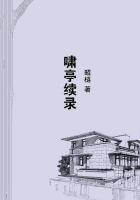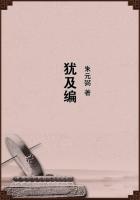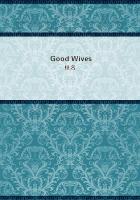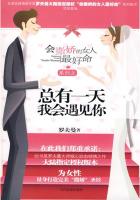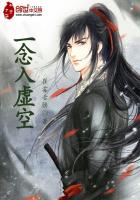That ugly scar, that cut into his right eyebrow and gave him such a sinister expression, was got one night Jess slipped on the ice and laid him insensible eight miles from home. His limp marked the big snowstorm in the fifties, when his horse missed the road in Glen Urtach, and they rolled together in a drift. MacLure escaped with a broken leg and the fracture of three ribs, but he never walked like other men again. He could not swing himself into the saddle without ****** two attempts and holding Jess's mane. Neither can you "warstle" t hrough the peat-bogs and snow-drifts for forty winters without a touch of rheumatism. But they were honourable scars, and for such risks of life men get the Victoria Cross in other fields. MacLure got nothing but the secret affection of the Glen, which knew that none had ever done one tenth as much for it as this ungainly, twisted, battered figure, and I have seen a Drumtochty face soften at the sight of MacLure limping to his horse.
Mr. Hopps earned the ill-will of the Glen for ever by criticising the doctor's dress, but indeed it would have filled any townsman with amazement. Black he wore once a year, on sacrament Sunday, and, if possible, at a funeral; top-coat or water-proof never. His jacket and waistcoat were rough homespun of Glen Urtach wool, which threw off the wet like a duck's back, and below he was clad in shepherd's tartan trousers, which disappeared into unpolished riding-boots. His shirt was gray flannel, and he was uncertain about a collar, but certain as to a tie,--which he never had, his beard doing instead,--and his hat was soft felt of four colours and seven different shapes. His point of distinction in dress was the trousers, and they were the subject of unending speculation.
"Some threep that he's worn thae eedentical pair the last twenty year, an' a mind masel' him getting' a tear ahint, when he was crossin' oor palin', an the mend's still veesible.
"Ithers declare 'at he's got a wab o' claith, and hes a new pair made in Muirtown aince in the twa year maybe, and keeps them in the garden till the new look wears aff.
"For ma ain pairt," Soutar used to declare, "a' canna mak' up my mind, but there's ae thing sure: the Glen wudna like tae see him withoot them; it wud be a shock tae confidence. There's no muckle o' the check left, but ye can aye tell it, and when ye see thae breeks comin' in ye ken that if human pooer can save yir bairn's life it 'ill be dune."
The confidence of the Glen--and the tributary states--was unbounded, and rested partly on long experience of the doctor's resources, and partly on his hereditary connection.
"His father was here afore him," Mrs. Macfadyen used to explain;"atween them they've hed the country-side for weel on tae a century; i f MacLure disna understand oor constitution, wha dis, a' wud like tae ask?"
For Drumtochty had its own constitution and a special throat disease, as became a parish which was quite self-contained between the woods and the hills, and not dependent on the lowlands either for its diseases or its doctors.
"He's a skilly man, Dr. MacLure," continued my friend Mrs. Macfadyen, whose judgment on sermons or anything else was seldom at fault; "an' a kind-hearted, though o' coorse he hes his faults like us a', an' he disna tribble the kirk often.
"He aye can tell what's wrong wi' a body, an' maistly he can put ye richt, and there's nae new-fangled wys wi' him; a blister for the ootside an' Epsom salts for the inside dis his wark, an' they say there's no an herb on the hills he disna ken.
"If we're tae dee, we're tae dee; an' if we're tae live, we're tae live," concluded Elspeth, with sound Calvinistic logic; "but a' 'll say this for the doctor, that, whether yir tae live or dee, he can aye keep up a sharp meisture on the skin.
"But he's no verra ceevil gin ye bring him when there's naethin' w rang," and Mrs. Macfadyen's face reflected another of Mr. Hopps's misadventures of which Hillocks held the copyright.
"Hopps's laddie ate grosarts (gooseberries) till they hed to sit up a' n icht wi' him, an' naethin' wud do but they maum hae the doctor, an' h e writes 'immediately' on a slip o' paper.
"Weel, MacLure had been awa' a' nicht wi' a shepherd's wife Dunleith wy, and he comes here withoot drawin' bridle, mud up tae the een.
" 'What's adae here, Hillocks?' he cries; 'it's no an accident, is 't?' and when he got aff his horse he cud hardly stand wi' stiffness and tire.
" 'It's nane o' us, doctor; it's Hopps's laddie; he's been eatin' o wer-mony berries.'
"If he didna turn on me like a tiger!
" 'Div ye mean tae say--'
" 'Weesht, weesht,' an' I tried tae quiet him, for Hopps wes coomin' o ot.
" 'Well, doctor,' begins he, as brisk as a magpie, 'you're here at last; there's no hurry with you Scotchmen. My boy has been sick all night, and I've never had a wink of sleep. You might have come a little quicker, that's all I've got to say.'
" 'We've mair tae dae in Drumtochty than attend tae every bairn that hes a sair stomach,' and a' saw MacLure was roosed.
" 'I'm astonished to hear you speak. Our doctor at home always says to Mrs. 'Opps, "Look on me as a family friend, Mrs. 'Opps, and send for me though it be only a headache." '
" 'He'd be mair spairin' o' his offers if he hed four and twenty mile tae look aifter. There's naethin' wrang wi' yir laddie but greed. Gie him a gud dose o' castor-oil and stop his meat for a day, an' he 'ill be a'richt the morn.'
" 'He 'ill not take castor-oil, doctor. We have given up those barbarous medicines.'
" 'Whatna kind o' medicines hae ye noo in the Sooth?'
" 'Well, you see Dr. MacLure, we're homoeopathists, and I've my little chest here,' and oot Hopps comes wi' his boxy.
" 'Let's see 't,' an' MacLure sits doon and tak's oot the bit bottles, and he reads the names wi' a lauch every time.
" 'Belladonna; did ye ever hear the like? Aconite; it cowes a'. Nux vomica. What next? Weel, ma mannie,' he says tae Hopps, 'it's a fine ploy, and ye 'ill better gang on wi' the nux till it's dune, and gie him ony ither o' the sweeties he fancies.

